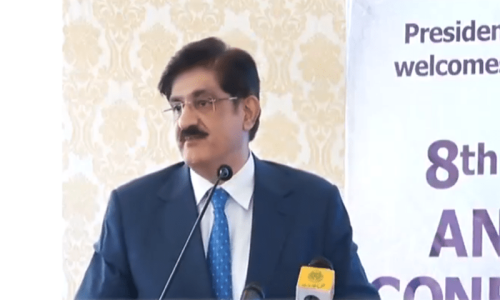KARACHI, Jan 4: Chairperson of the Pakistan People’s Party Benazir Bhutto has said that when military dictatorship had brought disintegration and defeat to the nation in 1971, Quaid-i-Awam Shaheed Zulfikar Ali Bhutto had picked up the pieces of a truncated Pakistan to build it anew. “He raised the morale of a defeated and demoralized nation by retrieving 5,000-square mile territory and bringing back tens of thousands of prisoners of war.
Ms Bhutto, a former prime minister, stated this in her message on the 78th birthday of the country’s first elected prime minister, Zulfikar Ali Bhutto, being celebrated on Thursday (Jan 5).
“Shaheed Bhutto was a colossus who towered over the national politics for more than four decades. It is a measure of his greatness that today, the politics of the country revolves round his name. The two political forces in the country are those who follow Zulfikar Ali Bhutto’s democratic struggle and those who oppose it in the form of military dictatorship.”
She said that her father had given voice to the voiceless and helped them shape up their own destiny.
Recounting his achievements during his tenure, she recalled that he had authored a federal, democratic and representative constitution approved unanimously in 1973; he was father of the country’s nuclear programme; he built the Korakorum Highway, Port Qasim, Kamrah Aeronautical Complex and Heavy Mechanical Complex, which all stood today as silent monuments to his memory.
“It was Zulfikar Ali Bhutto who established Azad Kashmir as an autonomous area with its own president, prime minister and judiciary and gave Balochistan the status of a province, she said.
Benazir Bhutto said that the OIC Summit in 1974 in Lahore was a crowning achievement of Mr Bhutto where Yasir Arafat had been recognized as the authentic voice of Palestinian people. This had given birth to a movement that finally culminated in the creation of an autonomous Palestinian entity.
Z. A. Bhutto had introduced land reforms under which landless peasants were granted ownership of the land they tilled. His reforms in the labour sector gave workers the health, education and pension facilities that ultimately changed their status.
“As the nation pays tribute to one of its greatest sons, it is destined to move forward in the spirit of federalism, democracy, autonomy and egalitarianism which he lit through his example of courage in the defence of principles and ideals.”—PPI














































Dear visitor, the comments section is undergoing an overhaul and will return soon.